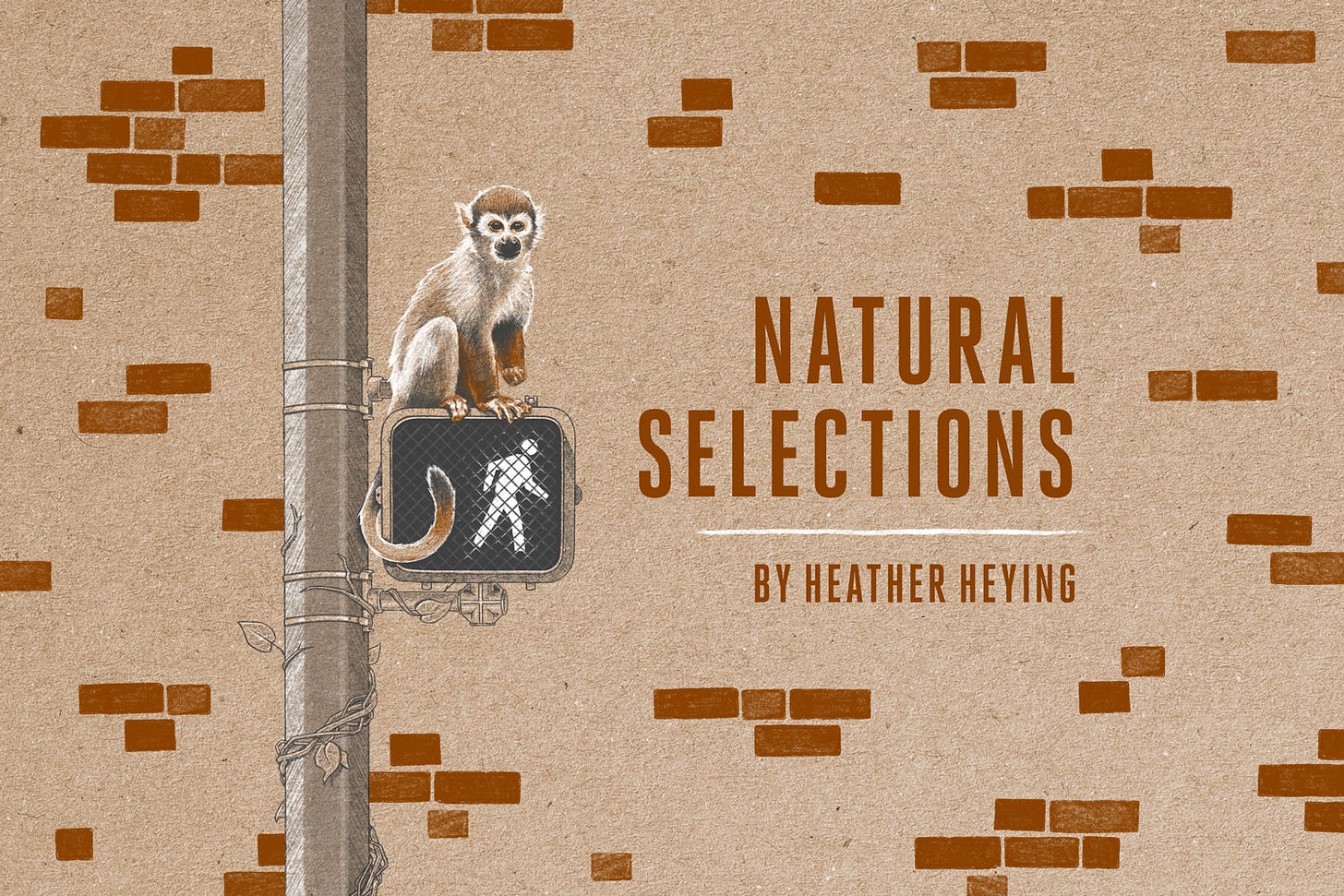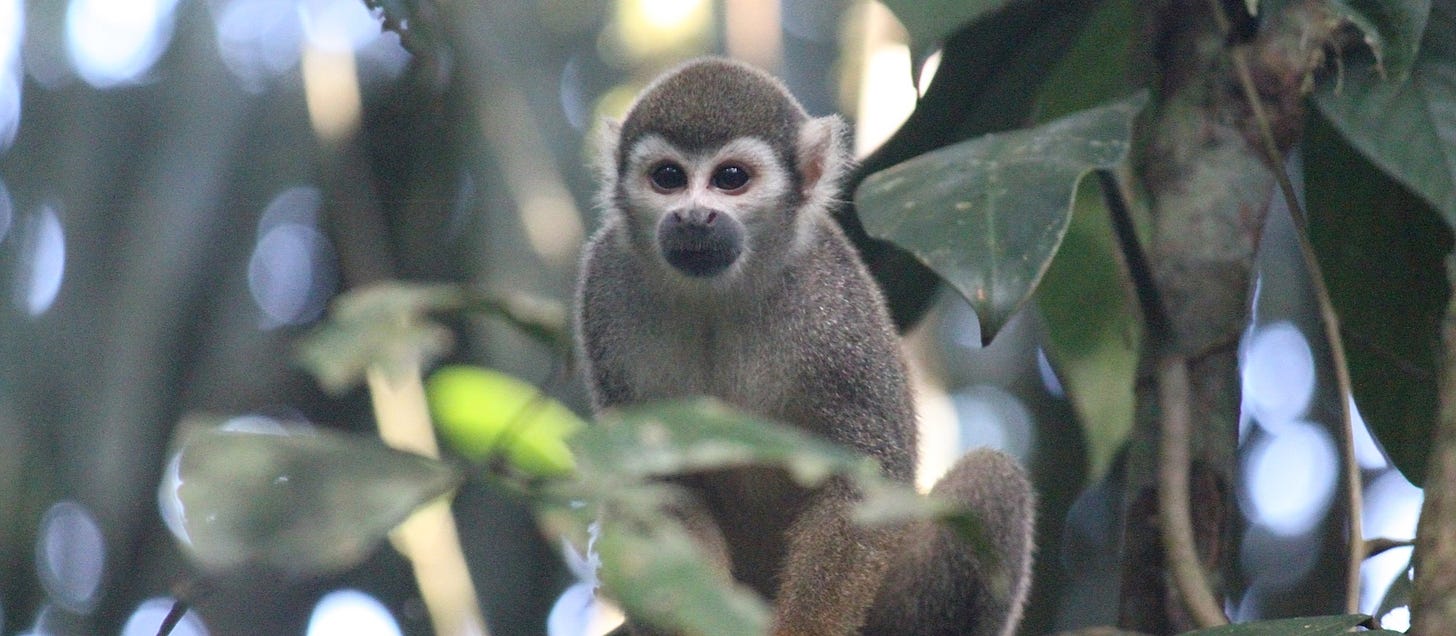About Natural Selections
From hummingbirds to humans, octopi to orchids, vipers to viruses, all of us, and all that we do, are the products of evolution. This newsletter explores form and function, behavior and culture, sex and science, all through an evolutionary lens.
We are born curious, and begin asking questions soon after learning to talk. Where do babies come from? What happened to the dinosaurs? Why do people get sick?
As an adult, you probably still have questions. What should I be eating? How do I know when to trust my instincts? What is happening to humanity?
I do not flinch from difficult topics, or ones about which there is disagreement among scientists. Science is messy. It is inefficient and glorious and maddening and fun. Many people have been convinced that they’re not good at science, but nearly all of us have scientific capabilities. And every one of us deserves to be treated as if we can think for ourselves. Instead, we are often served up pre-digested pap by authorities who may or may not have our best interests at heart.
In my fifteen years as a college professor, I found that nearly all students could rise to the challenge of being independent thinkers, assessing ideas and evidence with logic and rigor.
Sometimes we get into the weeds on the scientific process, which requires an assessment of all the possible hypotheses that may explain an observable pattern. Whatever has become the orthodoxy, the conventional wisdom—especially if it was arrived at rapidly and under cover of darkness—is up for discussion. This tension between “settled” wisdom and rigorous challenge is the way that human knowledge progresses, that we become better than we were before. We suppress the challenge at our peril.
Nearly every Tuesday, I post something here. I started Natural Selections in the Summer of 2021, and nearly everything has been available for free for the first three years. In August 2023, I changed it up a bit. Every other week, my Tuesday post was less structured, an exploration of things that have "caught my eye,” and these posts were for paying subscribers only. Paid subscribers can also comment on posts, and listen to me read some Tuesday posts in audio format, as well as some other occasional special perks. In early 2024, I began republishing my first book, Antipode, chapter by chapter, week by week, so that I could focus on writing my next. It’s a strange thing to revisit a time of my life—living and doing research in Madagascar—that seems like so many lifetimes ago. Interspersed among the chapters of Antipode are occasional other posts.
Everyone can engage the world scientifically, despite what you may have been told in school. Embracing science is about keeping your eyes and your mind open, and learning to recognize pattern. It requires that we leave all possible explanations—hypotheses—for a given observation or trend on the table, and learn to sort the hypotheses based on evidence. Science is necessary, but science is also fun.
An evolutionary approach to the world means that nearly nothing is off-topic. I may yet talk about beavers or handedness, elephants or pregnancy. and I’ve already discussed both SARS-CoV2 and sunlight, sex and love and childhood, seahorses and the Sea of Cortez, and so much more. If it evolved, it’s fair game.
About Heather Heying
I am a scientist, educator, and author. I have conducted research on the evolution of social systems and sexual selection, from frogs to humans. For 15 years I was a college professor, pushing students outside of their own certainty and comfort zones, in part through exploring remote sites in the neotropics. Before that, I earned my PhD in Biology from the University of Michigan, where I earned the university’s top honor for my dissertation. My undergraduate degree is in Anthropology.
My first book, Antipode, is based on my experiences in Madagascar while studying the sex lives of poison frogs. With husband Bret Weinstein, I host a popular weekly livestream, The Evolutionary Lens, on the DarkHorse podcast, in which we aim to make the scientific process accessible and transparent to anyone, regardless of their background or credentials. And our book (published September 2021) is A Hunter-Gatherer’s Guide to the 21st Century: Evolution and the Challenges of Modern Life; it provides an evolutionary toolkit for living a good and honorable life as an ape in the 21st century. It made the New York Times bestseller list, and Amazon’s top 20 general science books for 2021.
I will gladly spend hours watching parrots klatsch at a clay lick, lizards hunt katydids, and squirrel monkeys do anything. I enjoy wandering around foreign cities. I enjoy wandering around natural places even more–the Washington coast in Spring during the shorebird migration, neotropical cloud forests with squirrel cuckoos and colorful bursts of tanagers, the San Juan Islands, the Amazon. (Read more here.)




